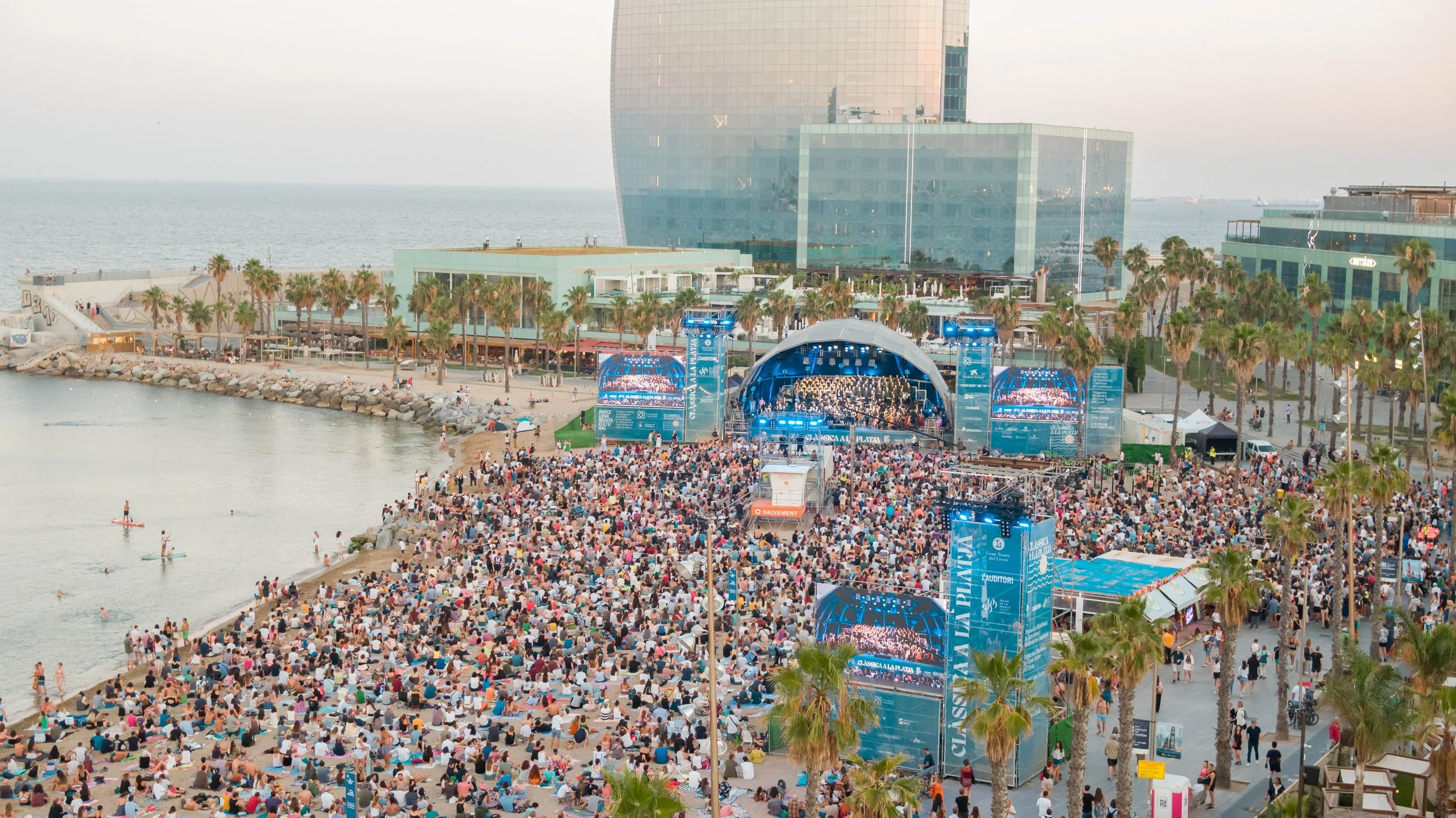Antigone [on strike], Park Theatre Review
Antigone [on strike] production image. Photo by Nir Segal A
Written by Paris for Theatre and Tonic
Disclaimer: Gifted tickets in exchange for an honest review
Antigone [on strike] at Park Theatre takes on the challenge of reinterpreting Sophocles’ Antigone for a contemporary audience. I believe that a successful adaptation should justify itself, proving why its themes remain urgent today. This is where Antigone [on strike] excels.
Written and directed by Alexander Raptotasios, and set in a contemporary UK, the play reimagines Antigone as Antiya (played beautifully by Hiba Medina), a young woman fighting for the right to bring her sister, Esmeh—who was groomed at a very young age—back to Britain for a fair trial. Esmeh, played by Hanna Khogali and portrayed via video call (a great multimedia touch by video content creator Vittoria Belli), is a so-called "ISIS bride" seeking to return home, but the British government refuses her entry. Phil Cheadle gives a standout performance as the Home Secretary, a modern Creon—a cold, cynical political operator willing to exploit any situation, including his own family, to consolidate power. His characterisation is a chillingly accurate portrayal of today’s so-called centrist politicians, who lean further right whenever they need to secure public support. Ali Hadji-Heshmati plays his conflicted son and Antiya’s partner. Sorcha Brooks is delightful, seamlessly shifting between a news reporter, a far-right advocate, an AI companion/modern Tiresias, and ultimately the play’s narrator, highlighting how media narratives shape public perception. The clever, multifunctional set design by Marco Turcich—evoking an ancient Greek temple while transforming from a park bench to the House of Commons and more—adds another layer of ingenuity to the production.
The play captures, with unsettling accuracy, how social media and information overload dehumanise those demanding fundamental rights. It exposes how urgent political matters are depoliticised, and twisted into shallow spectacles of outrage and emotion. Conservative politics thrive on this dynamic, using the noise and drama to their advantage while real issues remain unaddressed. Antigone [on strike] asks all the right questions—an achievement in itself, given today’s tightly controlled media narratives. It highlights how deeply conservative ideas now pass as centrist, while simple human rights and justice demands are dismissed as "woke," extreme, or even unpatriotic.
The play’s interactive element reflects the illusion of participation in modern discourse—mirroring how we "engage" with politics through likes, shares, and comments, believing we are making a difference. Initially intriguing, this mechanism loses impact as the play progresses. It is unclear whether and how audience choices truly shape the story, making it more of an exercise in gauging the general perspective than challenging individual viewpoints. This was a missed opportunity; stronger execution could have added a powerful dimension to the experience.
While Antigone [on strike] raises essential questions, it falls short of providing satisfying answers. Antiya’s hunger strike—a historically powerful form of protest—feels more like a battleground between factions than a direct challenge to the state. Her supporters range from empathetic citizens to human rights advocates and left-wing activists, while her opponents include the far-right and hardline conservatives. This division is convincing, but the play stumbles in its resolution. A final monologue from Antiya is difficult to interpret, moving into an ambiguous space that feels uncomfortably close to horseshoe theory—the idea that the left and right are equally extreme, a shallow false equivalence that ultimately benefits far-right ideology. Whether intentional or not, this weakens the play’s stance, leaving its ultimate message unclear—and arguably as dangerous and self-destructive as the Home Secretary’s decisions throughout the story.
Despite these shortcomings, Antigone [on strike] is a fresh and thought-provoking adaptation. It insightfully dissects how modern governments manipulate narratives, drawing a parallel between the unyielding laws of the ancient Greek gods and today’s rigid, state-controlled political messaging. In both cases, those in power dictate what is "right"—whether it be Creon’s interpretation of divine law or a government’s stance on citizenship and justice. If we fail to challenge these frameworks and reclaim control over our own narratives, we risk enabling history’s darkest chapters to repeat themselves. Though the production has its flaws—some moments feeling hesitant to take a clear stance, some elements underdeveloped—it is undeniably worth seeing. It forces audiences to reflect on difficult contemporary issues, and in a time where mainstream narratives increasingly serve power rather than truth, that alone makes it a vital piece of theatre.
At Park Theatre until 22 February 2025
★ ★ ★ .5













